1467 Resources
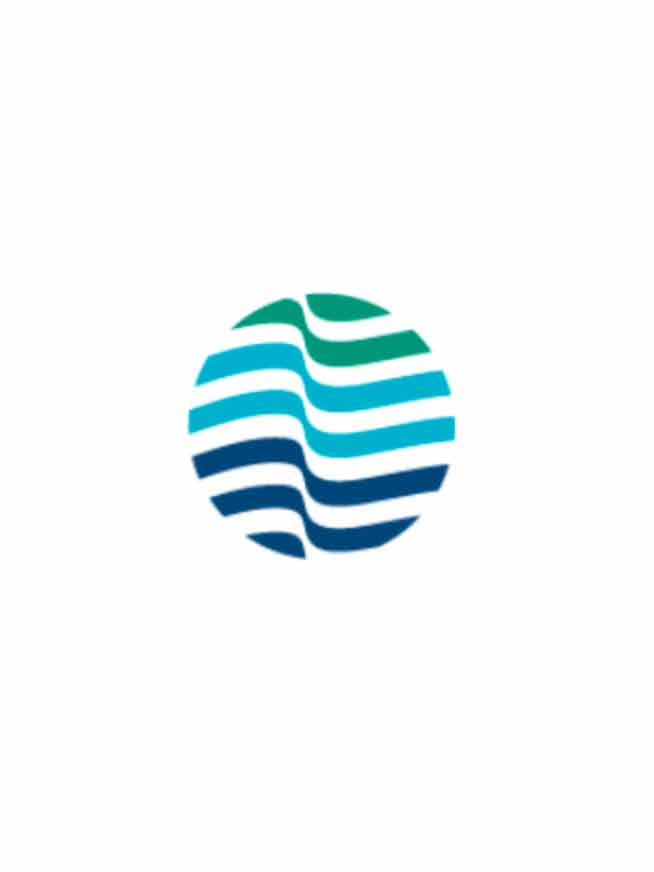
May 2025 Newsletter
May 17, 2025 | announcement
The monthly newsletter features the Pacific Institute’s research, publications, news about past and upcoming Institute staff outreach efforts, and media coverage of its work and analysis.

A Public-Private Partnership Might Be the Answer to Address California Water Scarcity | Opinion
May 7, 2025 | news

The Business Case for Investing in Nature: From Novel to the New Normal
April 22, 2025 | post
Nature-based solutions are essential infrastructure investments with the potential to produce broad benefits. Many businesses and governments struggle to identify and implement nature-based solutions due to uncertainty in assessing and measuring their benefits and value.

April 2025 Newsletter
April 17, 2025 | announcement
The monthly newsletter features the Pacific Institute’s research, publications, news about past and upcoming Institute staff outreach efforts, and media coverage of its work and analysis.

California’s Snowpack ‘Pretty Good,’ Official Says, as More Storms on the Way
March 28, 2025 | news

World Water Day 2025: Pacific Institute Reaffirms its Commitment to Water Resilience
March 21, 2025 | post
To mark World Water Day, the Pacific Institute is proud to announce accelerated action across its four water Impact Areas, while reaffirming its commitment to the ambitious goal of “catalyzing the transformation to water resilience in the face of climate change by 2030.”

The Business Importance of Water Scarcity and Stewardship
March 19, 2025 | news
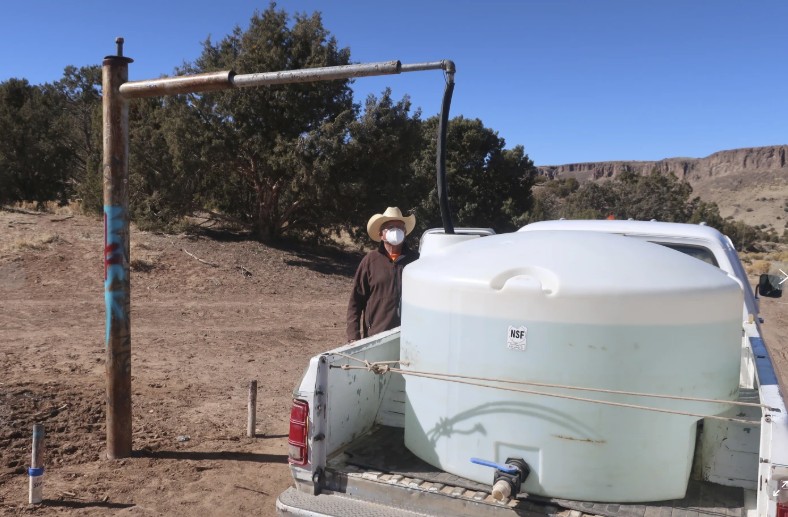
Report Highlights How Communities Hardest Hit by Climate Change Can Build Resilient Water Systems
March 18, 2025 | news

New Report Highlights 100+ Actionable Strategies for Climate-Resilient Water and Sanitation in Frontline Communities Across US
March 18, 2025 | announcement
New research released today by the Pacific Institute and DigDeep outlines over 100 actionable strategies for frontline communities’ water and sanitation systems in the face of intensifying climate impacts while addressing systemic inequities.
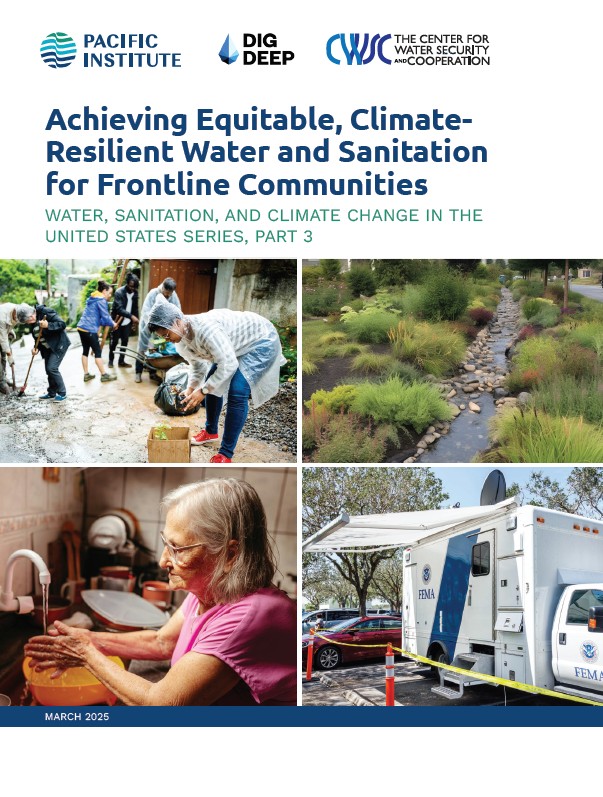
Achieving Equitable, Climate-Resilient Water and Sanitation for Frontline Communities: Water, Sanitation, and Climate Change in the United States, Part 3
March 18, 2025 | publication
Communities, local, state, and federal agencies, Tribes, NGOs, and others are working to create equitable, climate-resilient water and sanitation in the US. This report outlines over 100 actionable strategies for frontline communities’ water and sanitation systems in the face of intensifying climate impacts while addressing systemic inequities.

March 2025 Newsletter
March 14, 2025 | announcement
The monthly newsletter features the Pacific Institute’s research, publications, news about past and upcoming Institute staff outreach efforts, and media coverage of its work and analysis.
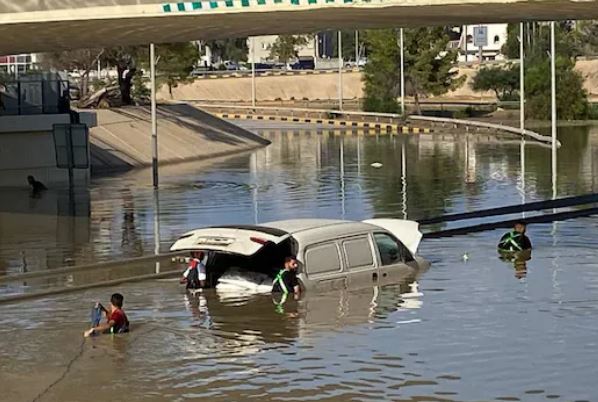
Introduction: Water Conflict and Cooperation
March 10, 2025 | news
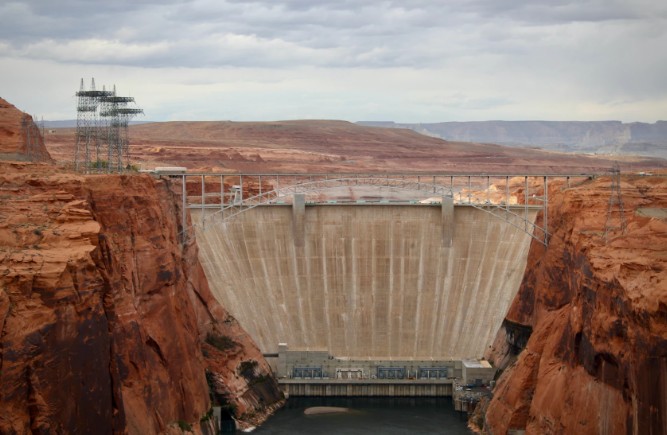
California, Arizona and Nevada Want a New Federal Review of Colorado River Plans
March 10, 2025 | news

NLCD: Landscape Info Supporting Our Safety and Economic Well-being
March 6, 2025 | news
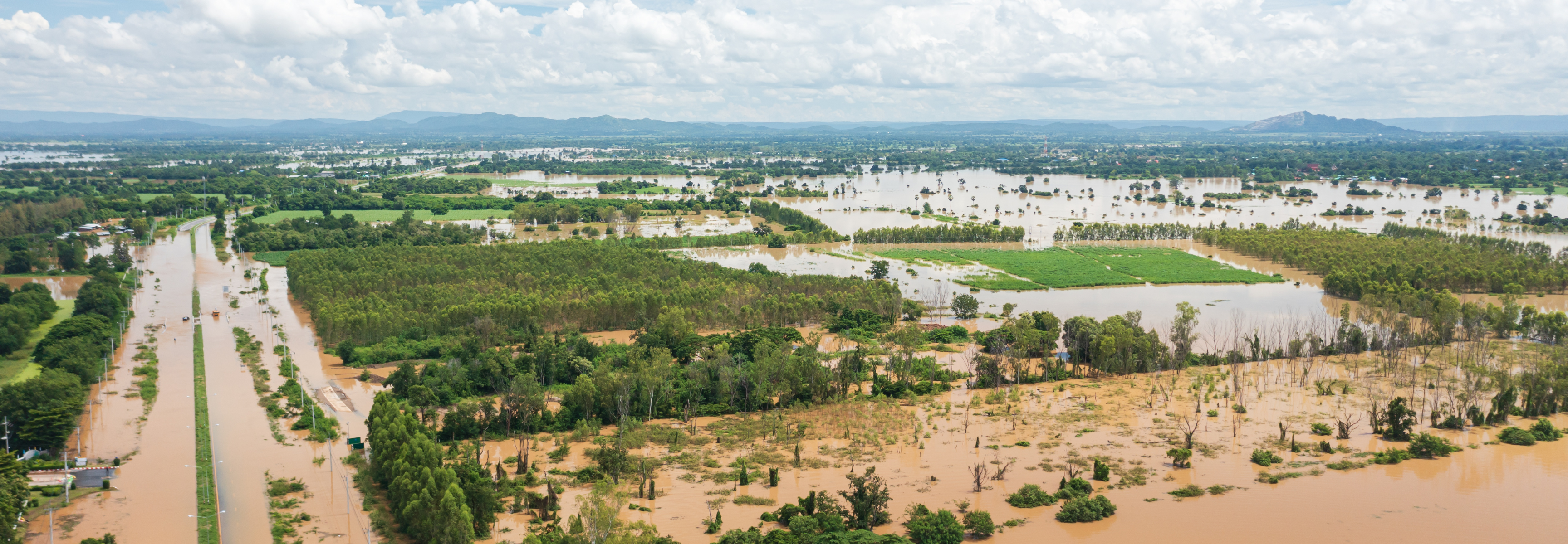
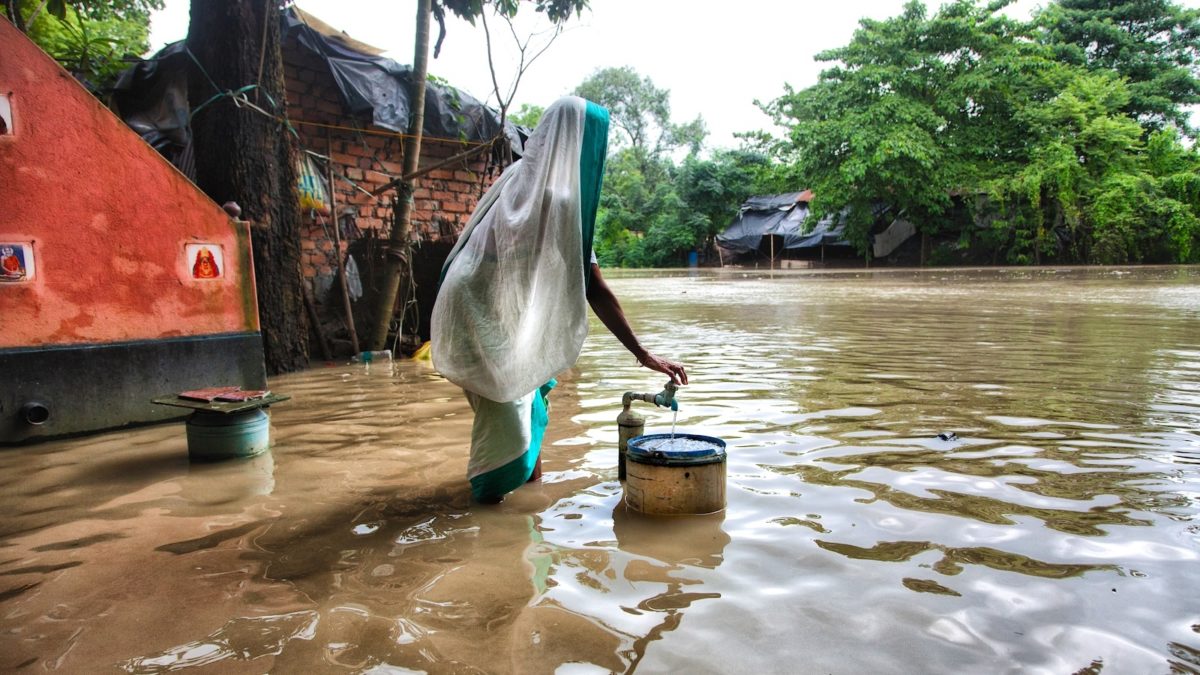
How Climate Change Puts the Safety of Drinking Water at Risk
February 27, 2025 | news

February 2025 Newsletter
February 14, 2025 | announcement
The monthly newsletter features the Pacific Institute’s research, publications, news about past and upcoming Institute staff outreach efforts, and media coverage of its work and analysis.
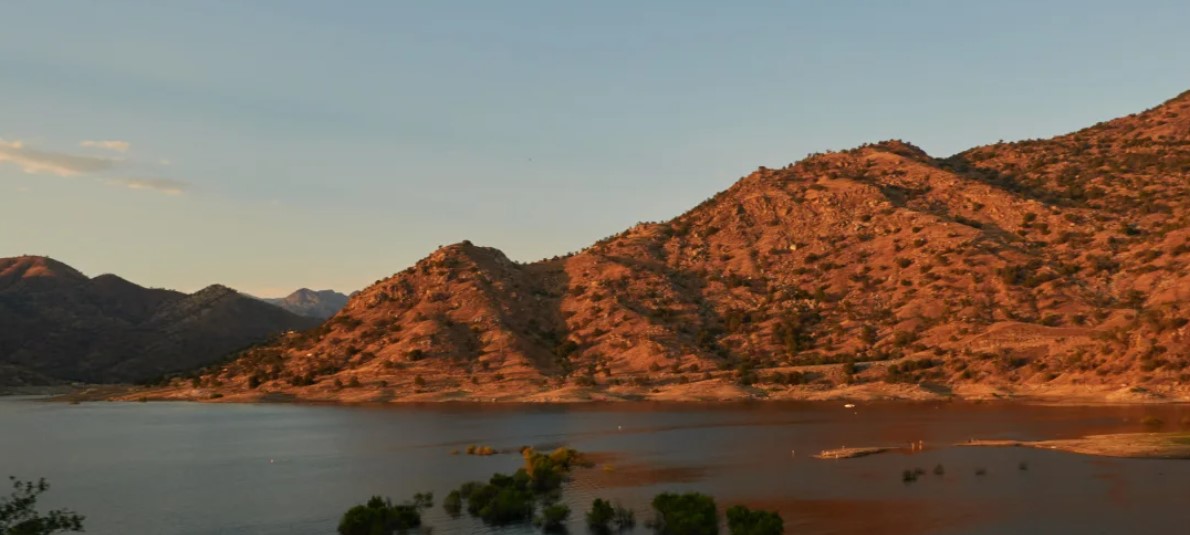
2.2 Billion Gallons of Water Flowed Out of California Reservoirs Because of Trump’s Order to Open Dams
February 3, 2025 | news
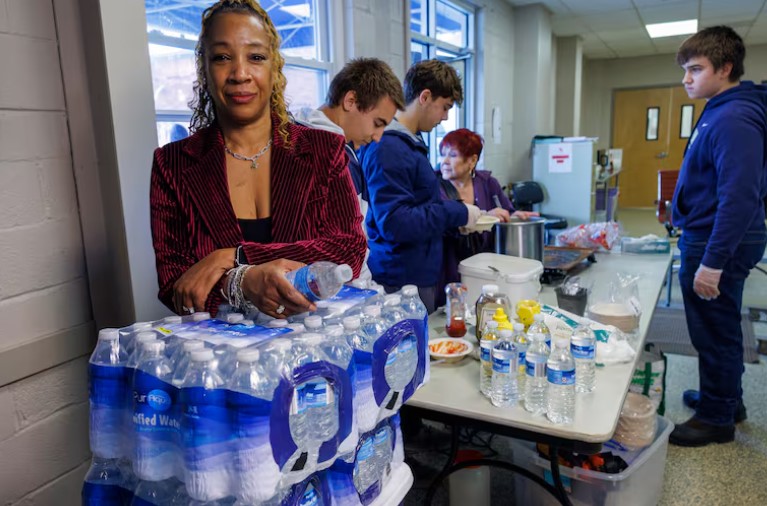
Finding a Drink of Water Becomes a Major Winter Problem for the Unsheltered
February 1, 2025 | news
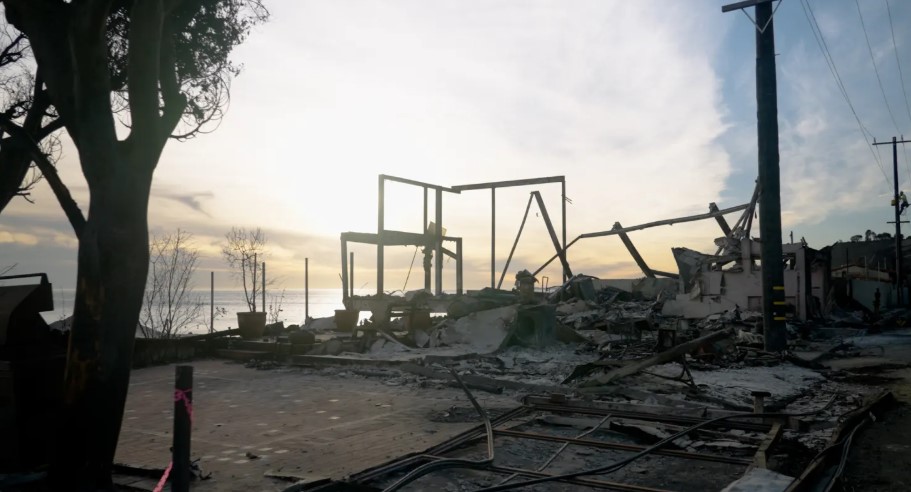
Extreme Demand Took Down LA’s Water System During the Palisades Fire. Here’s How Other U.S. Cities Can Prepare
January 30, 2025 | news
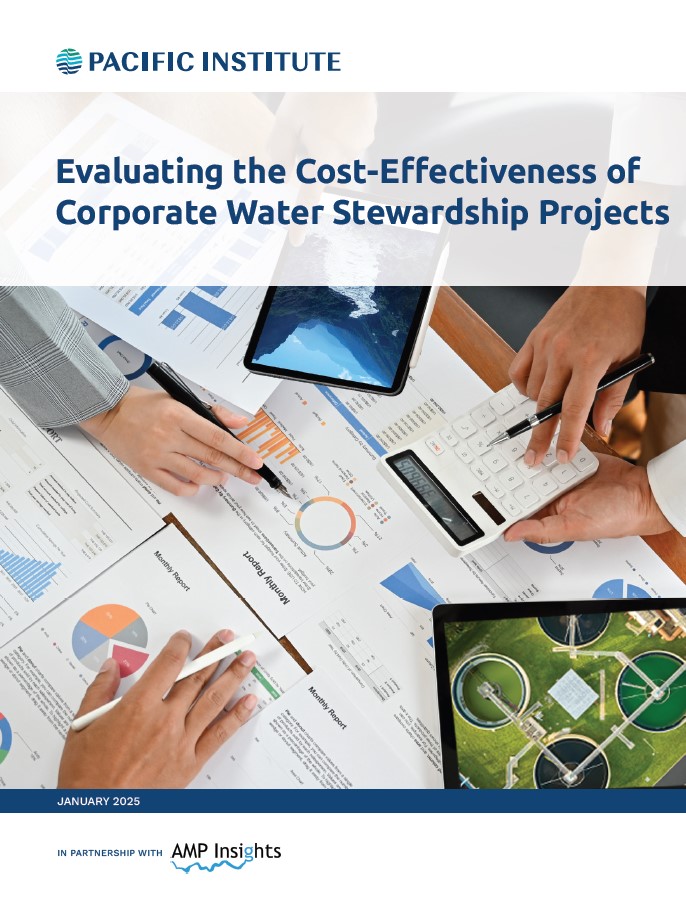
Evaluating Cost-Effectiveness of Corporate Water Stewardship Projects
January 29, 2025 | publication
To achieve ambitious and time-bound water stewardship goals, companies often invest in different projects spanning their operations, value chains, and local watersheds. When companies have a number of different projects to choose from, they may evaluate them against multiple criteria, including geographic scope, feasibility, innovation, and costs.


January 2025 Newsletter
January 16, 2025 | announcement
The monthly newsletter features the Pacific Institute’s research, publications, news about past and upcoming Institute staff outreach efforts, and media coverage of its work and analysis.

Yes, Wildfires Have Always Happened in California, but Climate Change Is Making Them Worse
January 14, 2025 | news
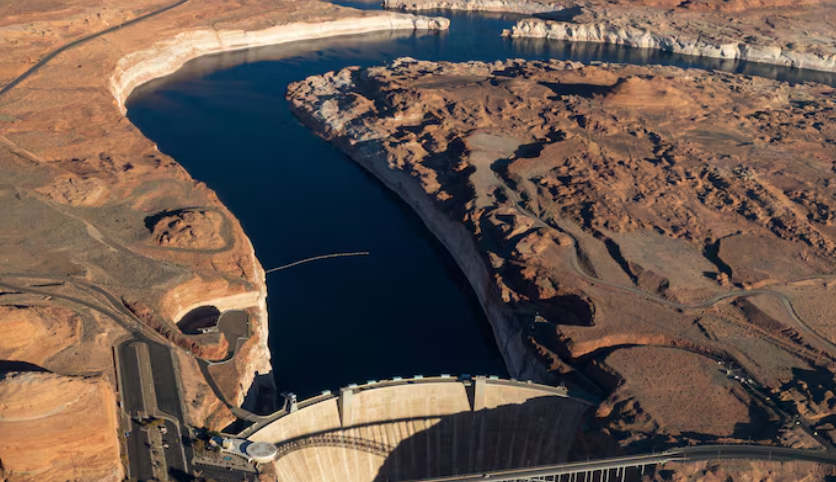
Page 1 of 59


